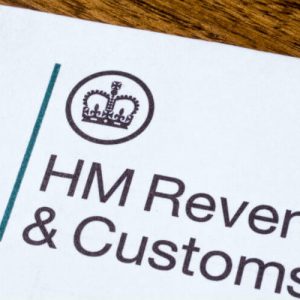Loan Charge and disguised remuneration
Changes to Loan charges have now been confirmed by the government: Read more here
Payment deadline & policy review – an update
Scheme providers devised remuneration loan arrangements with the aim of avoiding the need to pay Income Tax and National Insurance contributions. Typically, this involved a loan or other payment from a third-party which is unlikely to ever be repaid. These were used by employers and individuals as well as contractors (often referred to as contractor loans).
Many workers from differing professions including nurses, teachers, IT workers and cleaners were involved in such schemes. Often following pressure from employers.
HMRC introduced a charge on these disguised remuneration loans, known as the Loan Charge. Created by the 2017 Financial Act, this came into effect in April 2019, to tackle the use of disguised remuneration schemes. The charge applies to all loans made since 6 April 1999, if they remained outstanding on 5 April 2019. It is uncommon for HMRC to investigate tax further back than six years, unless it suspects deliberate tax evasion or criminal activity.
Since the Loan Charge was introduced, HMRC has reached settlement with many individuals and employers of over £1 bn. Statistics from HMRC claim that the Loan Charge is estimated to raise a total of £3.2 bn.
Users of the scheme, who have provided all the relevant information to HMRC by 5 April 2019, can still settle their tax affairs under more favourable ‘November 2017’ terms. Those who haven’t settled or reached a settlement agreement with HMRC within agreed timeframes will have to report and pay the loan charge. This should be included in January 2020 self-assessments to avoid additional penalties, or HMRC perceiving it as tax avoidance and taking further action.
With a review of the policy currently underway, the current situation is becoming very complex as to what action those affected should now take.
Controversy
The introduction of the Loan Charge has not come without controversy, it has been widely criticised in the national press and has received debate in Parliament, including cross-party objections from many MPs and Lords. Steve Baker MP has led objections to the tax, on the grounds that it is a retrospective legislation that undermines the rule of law.
Impending review
Following the controversy, the Chancellor of the Exchequer, Sajid Javid announced in September 2019 that an independent review will be undertaken.
Due to be concluded in November 2019, but now delayed until after the December election, this review is being led by Sir Amyas Morse, former Chief Executive and Comptroller and Auditor General of the National Audit Office. The review will focus on the impact to individuals.
A number of MPs have asked the Chancellor to suspend the loan charge until this review concludes, however HMRC is currently ruling out a formal suspension, insisting the rules remain in place, despite a number of settlement agreements believed to be currently on hold.
If your liability to the loan charge changes as a result of the government response to the review you can amend your tax return for 2018/19.
What to do now?
Settlement terms are complicated and will vary on a case by case basis. HMRC states that it will not force anyone to sell their main home to pay disguised remuneration debts or the Loan Charge. It has also stated that Insolvency is only ever considered as a last resort. This will only be considered where users are at risk of accruing further tax debt or where they actively avoid paying what they owe.
Whilst it may seem prudent to wait until the outcome of the independent review, the government has said that it will consider and respond to the outcome of the review once it has been concluded. This will take time, as would any proposed changes to statute.
We recommend that anyone affected by this takes professional advice immediately. This is in order to ascertain whether any such schemes that you may have been involved in are liable for Loan Charges and importantly, if this is the case, in order to be prepared regardless of any changes to the legislation that may (or may not) result in the current review.
Should the Loan Charge still exist in its current charge after the review, you will then be best prepared to include the correct information in your next self-assessment and have detailed information to best make a case for any payments to be staggered over several years.
Why Alexander & Co
Here at Alexander & Co has expert knowledge and experience in assisting many diverse businesses. We work tirelessly to understand how clients’ businesses work and how best to assist their specific needs.
We can review your personal circumstances and advise on whether any payments made to you are likely to be liable for Loan Charges. We can also assist in dealing with HMRC on your behalf.
For further information, please contact a member of our specialist tax team today. Email us on info@alexander.co.uk or call our team on 0161 832 4841.





